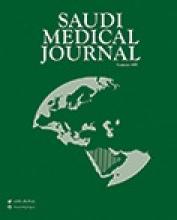14 May 2019 - People can reduce their risk of dementia by getting regular exercise, not smoking, avoiding harmful use of alcohol, controlling their weight, eating a healthy diet, and maintaining healthy blood pressure, cholesterol and blood sugar levels, according to new guidelines issued by the World Health Organization (WHO) today.
“In the next 30 years, the number of people with dementia is expected to triple,” said WHO Director-General Dr Tedros Adhanom Ghebreyesus. “We need to do everything we can to reduce our risk of dementia. The scientific evidence gathered for these Guidelines confirm what we have suspected for some time, that what is good for our heart, is also good for our brain.”
The Guidelines provide the knowledge base for health-care providers to advise patients on what they can do to help prevent cognitive decline and dementia. They will also be useful for governments, policy-makers and planning authorities to guide them in developing policy and designing programmes that encourage healthy lifestyles.
The reduction of risk factors for dementia is one of several areas of action included in WHO’s Global action plan for the public health response to dementia. Other areas include: strengthening information systems for dementia; diagnosis, treatment and care; supporting carers of people with dementia; and research and innovation.
WHO’s Global Dementia Observatory, launched in December 2017, is a compilation of information about country activities and resources for dementia, such as national plans, dementia-friendly initiatives, awareness campaigns and facilities for care. Data from 21 countries, including Bangladesh, Chile, France, Japan, Jordan and Togo, have already been included, with a total of 80 countries now engaged in providing data.
Creating national policies and plans for dementia are among WHO’s key recommendations for countries in their efforts to manage this growing health challenge. During 2018, WHO provided support to countries such as Bosnia and Herzegovina, Croatia, Qatar, Slovenia and Sri Lanka to help them develop a comprehensive, multi-sectoral public health response to dementia.
An essential element of every national dementia plan is support for carers of people with dementia, said Dr Dévora Kestel, Director of the Department of Mental Health and Substance Abuse at WHO. “Dementia carers are very often family members who need to make considerable adjustments to their family and professional lives to care for their loved ones. This is why WHO created iSupport. iSupport is an online training programme providing carers of people with dementia with advice on overall management of care, dealing with behaviour changes and how to look after their own health.”
iSupport is currently being used in eight countries, with more expected to follow.
Dementia: a rapidly growing public health problem
Dementia is an illness characterized by a deterioration in cognitive function beyond what might be expected from normal ageing. It affects memory, thinking, orientation, comprehension, calculation, learning capacity, language and judgement. Dementia results from a variety of diseases and injuries that affect the brain, such as Alzheimer disease or stroke.
Dementia is a rapidly growing public health problem affecting around 50 million people globally. There are nearly 10 million new cases every year. Dementia is a major cause of disability and dependency among older people. Additionally, the disease inflicts a heavy economic burden on societies as a whole, with the costs of caring for people with dementia estimated to rise to US$ 2 trillion annually by 2030.
Available from: https://www.who.int/news-room/detail/14-05-2019-adopting-a-healthy-lifestyle-helps-reduce-the-risk-of-dementia
- Copyright: © Saudi Medical Journal
This is an open-access article distributed under the terms of the Creative Commons Attribution-Noncommercial-Share Alike 3.0 Unported, which permits unrestricted use, distribution, and reproduction in any medium, provided the original work is properly cited.






